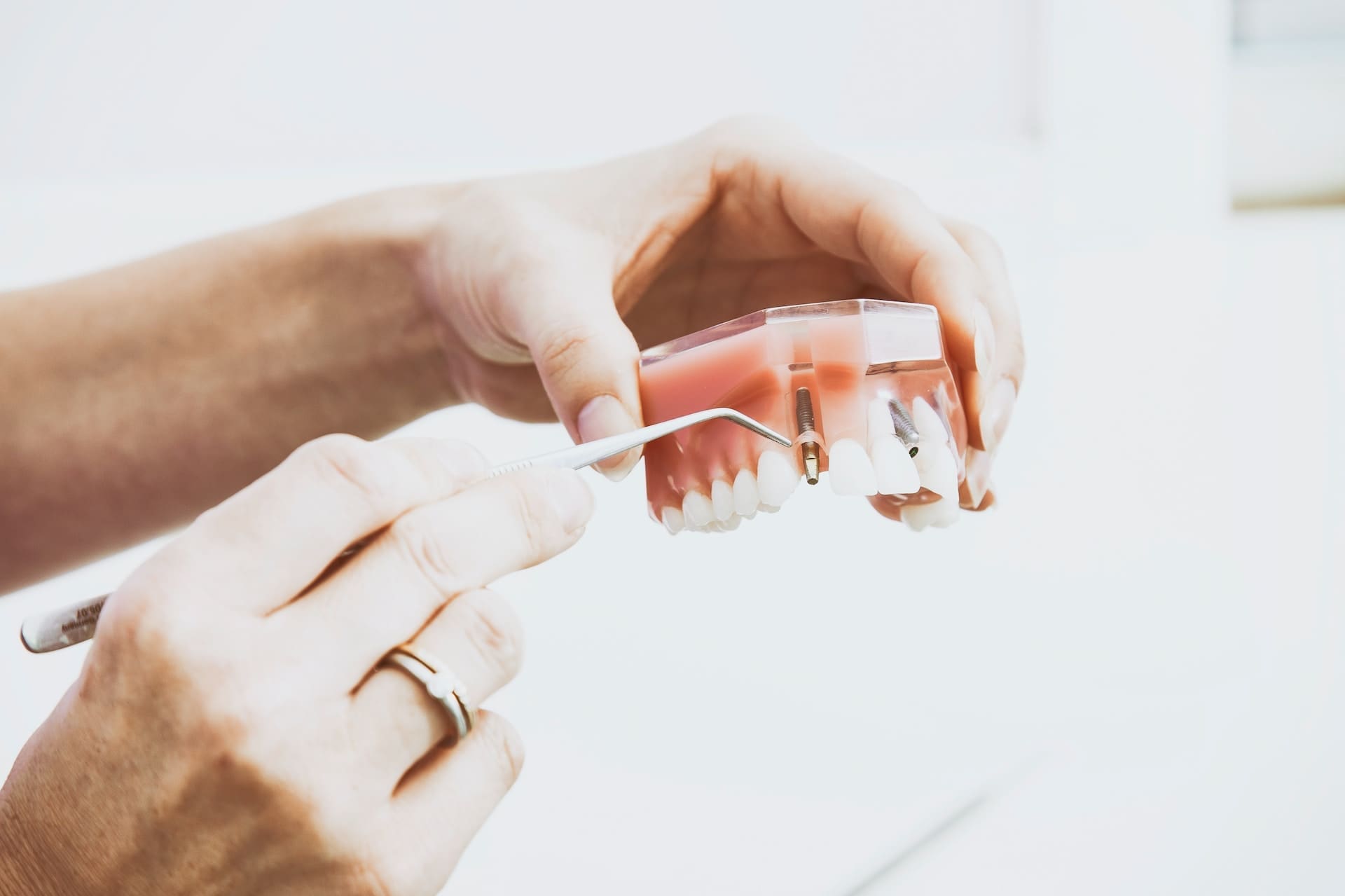Understanding the Components of Dental Implants
Dental implants consist of three primary components that work together to restore your smile seamlessly. Here is a brief description of each of these components:- Implant: The implant itself is a small screw-like structure made of titanium, which serves as the replacement for the tooth root. It is inserted into the jawbone through a surgical procedure, where it eventually fuses with the surrounding bone. This integration provides a stable foundation for the rest of the prosthetic tooth.
- Abutment: The abutment is the connector piece that attaches the implant to the dental crown. It acts as a support for the prosthetic tooth and ensures that it stays securely in place.
- Crown: The dental crown is the visible part of the artificial tooth and is custom-made to match the size, shape, and color of your natural teeth. Crowns are typically made of porcelain or ceramic materials, as they provide the closest resemblance to natural tooth enamel and are highly durable.
The Dental Implant Procedure: What to Expect
The process of getting dental implants involves several stages and typically takes a few months to complete. Here is a step-by-step breakdown of what you can expect during the procedure:- Initial Consultation: Your journey to a restored smile begins with an initial consultation at Weston Dental Specialists Group National Campaign. Our experienced dental professionals will conduct a thorough examination of your oral health and discuss your goals and concerns. This may include taking X-rays and dental impressions to assess the condition of your jawbone and plan the precise placement of the implant.
- Bone Grafting (if necessary): In some cases, patients may require a bone grafting procedure to strengthen the jawbone and ensure a successful implant. If this step is necessary for your treatment, our team will guide you through the process and provide detailed instructions for post-operative care.
- Implant Surgery: The implant surgery involves making a small incision in the gum tissue to expose the jawbone. Then, the dental implant is carefully placed into the bone using specialized tools and techniques. After the implant is inserted, the gum tissue is sutured closed, and the healing process begins.
- Osseointegration: One of the most critical stages of the dental implant procedure is osseointegration, which is when the implant fuses with the surrounding bone. This process can take anywhere from three to six months, depending on the individual patient’s healing ability and bone density.
- Abutment Placement: Once osseointegration is complete, the abutment is placed to connect the implant to the dental crown. This step typically involves a minor surgical procedure to expose the top of the implant and secure the abutment in place.
- Crown Fitting: Finally, your custom-made dental crown is attached to the abutment, and your new tooth is complete. Our team will ensure that the crown fits seamlessly with your existing teeth and provides optimal function and aesthetics.
Caring for Your Dental Implants
Proper care and maintenance are essential to ensure the longevity and success of your dental implants. In many ways, caring for implants is similar to caring for natural teeth. Here are some tips for keeping your implants in top condition:- Practice Good Oral Hygiene: Brush your teeth at least twice a day using a soft-bristled toothbrush and non-abrasive toothpaste. Don’t forget to floss daily and use interdental brushes or water flossers to keep the area around the implant clean.
- Schedule Regular Dental Checkups: Visit Weston Dental Specialists Group National Campaign every six months for professional teeth cleanings and examinations. These routine appointments will allow our team to monitor the health of your implants and address any potential issues early on.
- Avoid Smoking: Smoking can hinder the healing process after implant surgery and increase the risk of implant failure. Quitting smoking is highly recommended to ensure the success of your dental implants.
- Protect Your Teeth: If you grind or clench your teeth, consider wearing a nightguard to protect your dental implants and natural teeth from excessive wear and tear. Additionally, be cautious with hard or sticky foods that may damage the dental crown.


